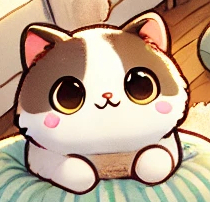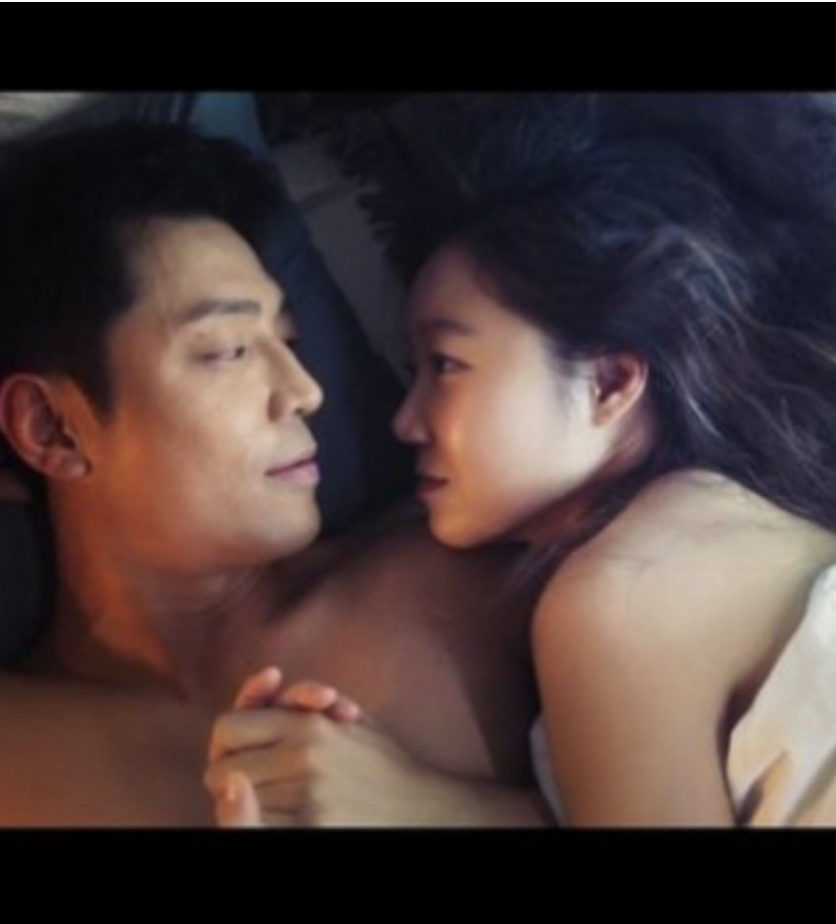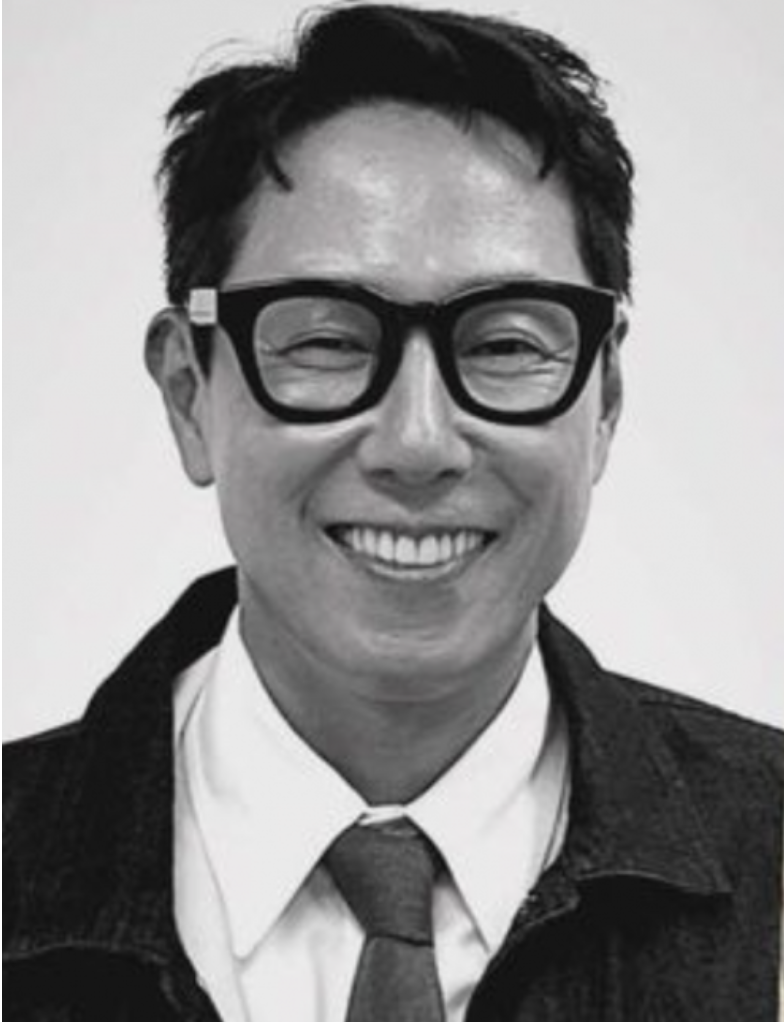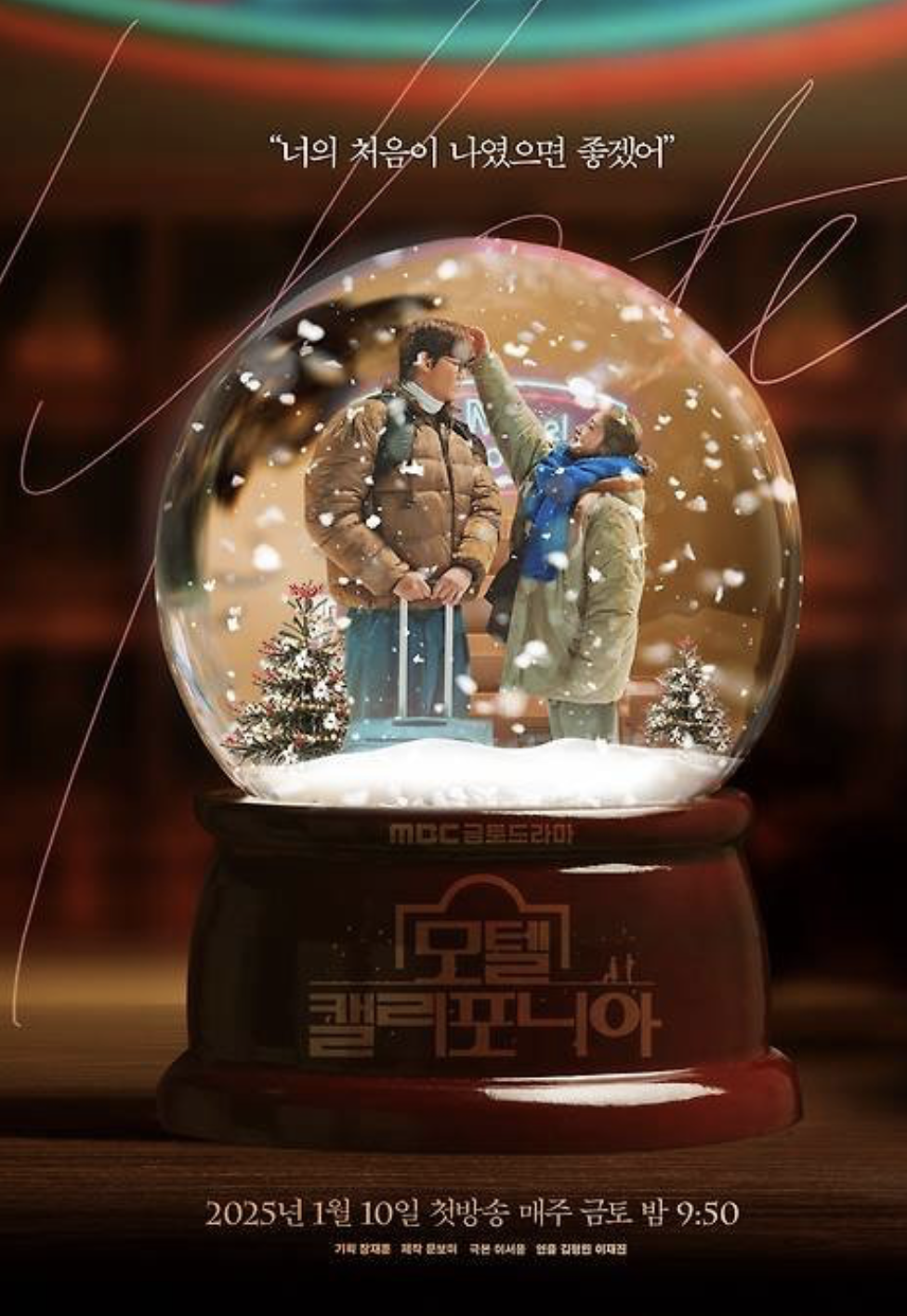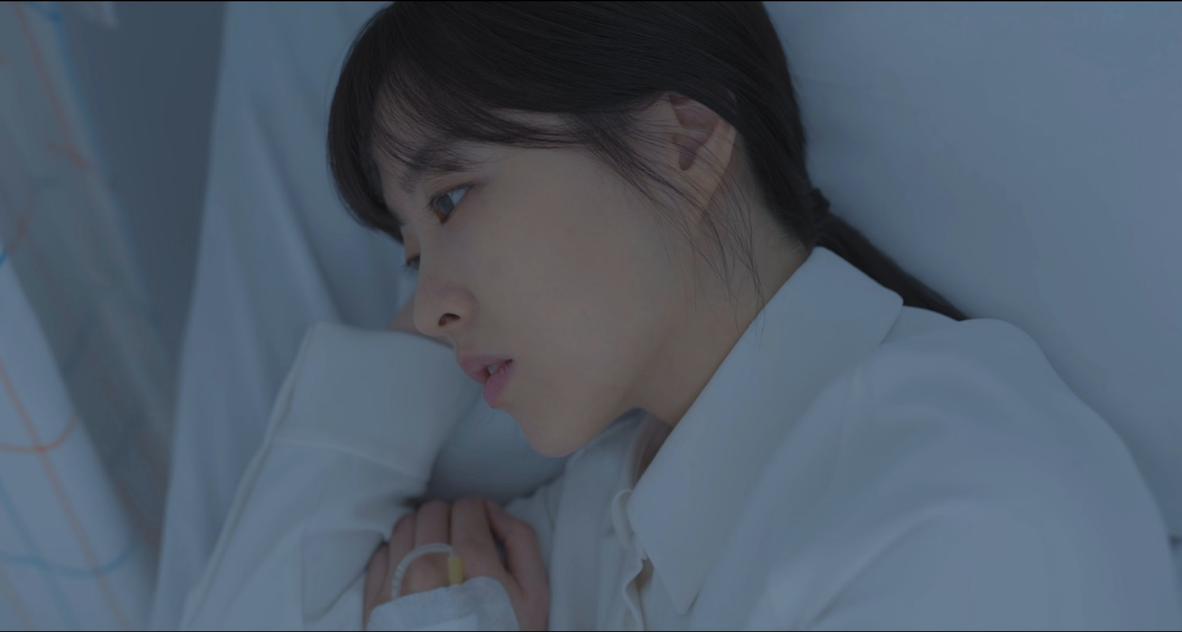
Our Unwritten Seoul- Episodes 1-2
The Name That Stayed
The premiere of Our Unwritten Seoul kicks off with quiet weight and unexpected heart. Mi-ji, our scrappy, no-nonsense heroine, opens the episode with a voiceover about her and her twin sister Mi-rae’s birth. Originally, she was meant to be named Mi-ji—"yet unknown"—but when Mi-rae, the elder twin, was born struggling to breathe, the name “Mi-rae,” meaning “future,” was given to her instead. Mi-ji ended up with the leftover name, and a lifetime of coming second.
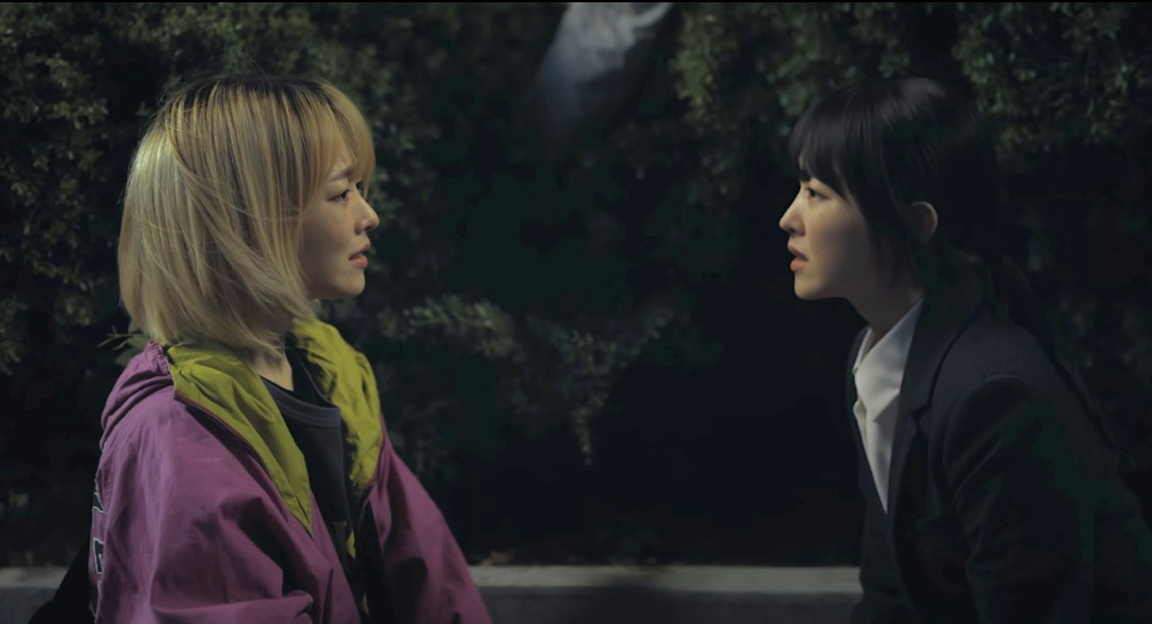
As kids, the twins were carbon copies—same face, same giggles, same tricks. After their father’s death, the girls leaned on each other in a way only twins can. They swapped identities to cover each other’s weaknesses: Mi-rae flubbed PE? Send in Mi-ji. Mi-ji bombed a quiz? Mi-rae to the rescue. But a routine medical check blew their cover. To end the confusion, Mi-ji’s hair got chopped short—and just like that, their lives started to split.
Fast forward to the present: Mi-rae is the family’s golden child, all degrees and paychecks, while Mi-ji scrubs chalkboards and floors as a part-time school cleaner. But Mi-ji isn’t bitter—just broke and a little lost at 30. After quitting her job, she sends in a Hail Mary of a resume to a strawberry farm.
Enter Lee Ho-su, the childhood neighbor turned hotshot lawyer, whose gift for lip-reading in the courtroom hints at a deeper hearing disability. He bumps into Mi-ji when she delivers food to his mom. Cue a flashback to when they were younger—Mi-ji once bluntly asked if he was deaf, and he never spoke to her again. Their history is awkward, tangled, and far from over.
Meanwhile, on the farm, we meet Han Se-jin, a cranky young farmer with something to prove (and only three boxes of strawberries to his name). He’s unimpressed with Mi-ji’s empty resume until he learns she used to be an athlete and a local vouches for her grit.
Back in Mi-ji’s life, she’s the one holding her grandmother’s hand after a stroke, doing the invisible labor no one sees. Mi-rae? She’s MIA emotionally, though she’s been footing all the medical bills. When Mi-ji finally corners her at a café, Mi-rae lets something chilling slip: maybe falling from a third-floor window would buy her a break. Mi-ji laughs it off—until she returns from the restroom and Mi-rae is gone.


Panic hits. Mi-ji races to Mi-rae’s apartment and finds her on the edge of the balcony. In a frantic moment, she grabs her sister and they both go tumbling—but miraculously survive.
Flashbacks piece together the truth: Mi-rae’s been quietly crumbling under relentless bullying at work after defending a whistleblowing senior. Now she’s isolated, exhausted, and mentally worn down. She puts on a brave face at the hospital, sends Mi-ji home, and tells her not to worry.
But Mi-ji knows better. She’s not the "future" of the family, but she’s the one who steps up when things go sideways. Just like the time she jumped in to defend Ho-su from school bullies, she acts on instinct.
In the final scene, she returns to Mi-rae with a wild idea: let’s switch places—just like old times.
Salt, Secrets, and Switch-Ups
Episode 2 of Our Unwritten Seoul turns up the tension, deepens the twin switch chaos, and throws in a handful of salt—literally.
We open with a flashback: Ho-su, freshly humbled, realizes Mi-ji never knew about his hearing loss and partial paralysis. His grudge loses steam. Hoping to patch things up, he heads next door only to find both twins fresh out of the bath, heads wrapped in towels. Still, he pegs who's who with zero hesitation—visual cues or not, he knows Mi-ji.

Cut to present day: Mi-ji is now living as Mi-rae, trying not to crash and burn in her sister’s high-pressure office job. Rewind a few hours—cue a chaotic makeover montage. Mi-ji gets hair extensions; Mi-rae hacks off her locks (but draws the line at bleaching). The next morning, Mi-ji's thrown into the deep end: she’s late for a key meeting and barges in with bold ideas, completely ignoring Mi-rae’s advice to stay low-key. The room goes silent. Corporate jaws drop.
Meanwhile, Mi-rae, desperate to avoid family members who might see through her disguise, escapes to the strawberry farm. Han Se-jin greets her with… nothing. No assignments, no instructions. “Do what you want,” he shrugs, offering only daily pay and side-eye.
Back in the city, Mi-ji (still playing Mi-rae) thinks she’s making progress—until she accepts a new project and realizes it’s a trap. Her job? Convince an elderly restaurant owner to sell her land to the company. If she fails, it’s all on her. The old woman hurls salt in her face at the mere mention of a contract. It dawns on Mi-ji: the director wants Mi-rae gone, and this job was designed to make her fail. Still, Mi-ji doesn’t back down.
Over in Lawyer Land, Ho-su is cracking under the weight of his job's moral rot. He reaches out to “Mi-rae” (really Mi-ji), hoping to talk. She agrees, hoping to dig up more about her sister’s past. They hit a bar, but the noise overwhelms Ho-su, so they head to the Han River.

There, Mi-ji finally eats the cup ramen she dreamed of in school. Flashback to her and Ho-su’s youthful “Seoul bucket list” before her athletic career abruptly ended. The moment is sweet, but Ho-su throws a curveball—did Mi-rae drop her case because of him? Mi-ji brushes it off, still pretending to be her sister.
Meanwhile, Mi-rae (on the farm) tosses out an old chair while tidying up a shed. Se-jin is livid. Mi-rae pushes back, calling out his passive-aggressive management style: assigning no tasks but judging her anyway. She storms off, only to fall off her bike—because dignity always takes a hit after a dramatic exit.
The twins attempt a heart-to-heart but fumble. Later, Mi-rae visits their grandmother—disguised as Mi-ji—and is immediately seen through. Grandma knows her girls. She welcomes her home with love, no performance required.

Back at work, Ho-su learns that his superior intentionally assigned him to Mi-rae’s case to pressure her into dropping it. He’s officially sick of being used as a tool in shady power games.
The next day, Mi-ji heads back to the restaurant one more time, asking the old woman to see her as a person, not a corporate pawn. Response? More salt. But then—a text. The old woman wants to meet.
Mi-ji is overjoyed and lets her guard down for a second. Just long enough for Ho-su, sitting beside her, to finally realize:
She’s not Mi-rae. She’s Mi-ji.
DramaZen's Opinion
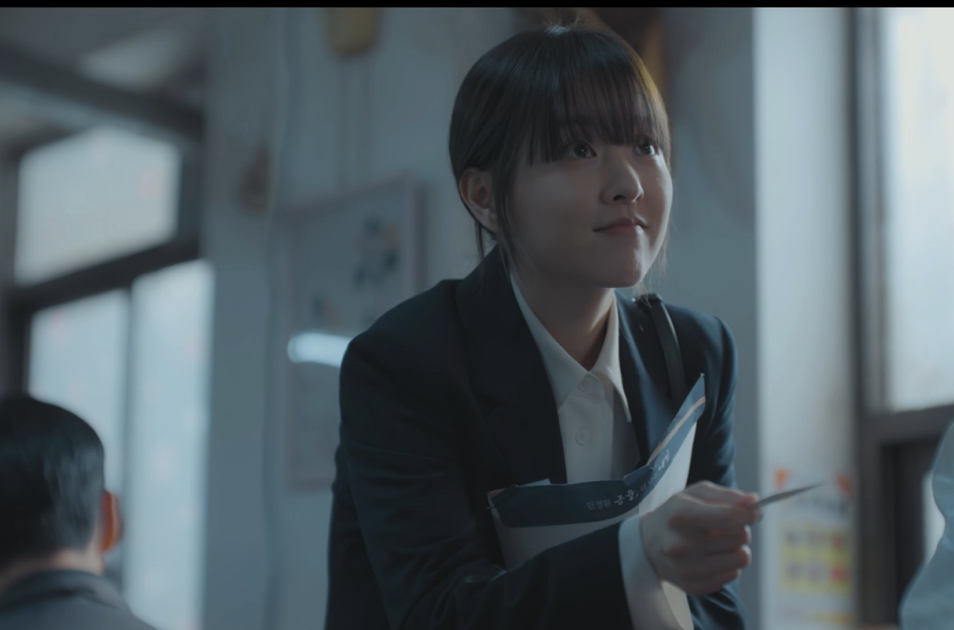
Okay, Our Unwritten Seoul is already messing with my emotions—and I love it.
From the first five minutes, I was in. Mi-ji and Mi-rae’s twin dynamic is layered, painful, and honestly hilarious at times. Mi-ji’s chaotic charm paired with Mi-rae’s quiet unraveling? Perfect contrast. The whole name-switch origin story? Genius.
Episode 1 hit hard with that balcony scene—I didn’t expect that level of intensity so early. And then boom, we’re in full-on identity swap territory in Episode 2. Mi-ji pretending to be Mi-rae in a corporate shark tank? Pure gold. I cheered when she took over that meeting and then cringed when she realized the project was a setup. Girl can’t catch a break.
Also, Lee Ho-su?? I need a spinoff already. The lip-reading lawyer with emotional damage and detective-level twin radar? I'm obsessed. That ramen moment by the Han River? Quietly heartbreaking.
And Mi-rae on the strawberry farm slowly defrosting while sparring with Se-jin is giving me slow burn enemies-to-alliesenergy.
This show balances humor, heaviness, and heartfelt moments so well. I’m all in. Let the chaos continue.

